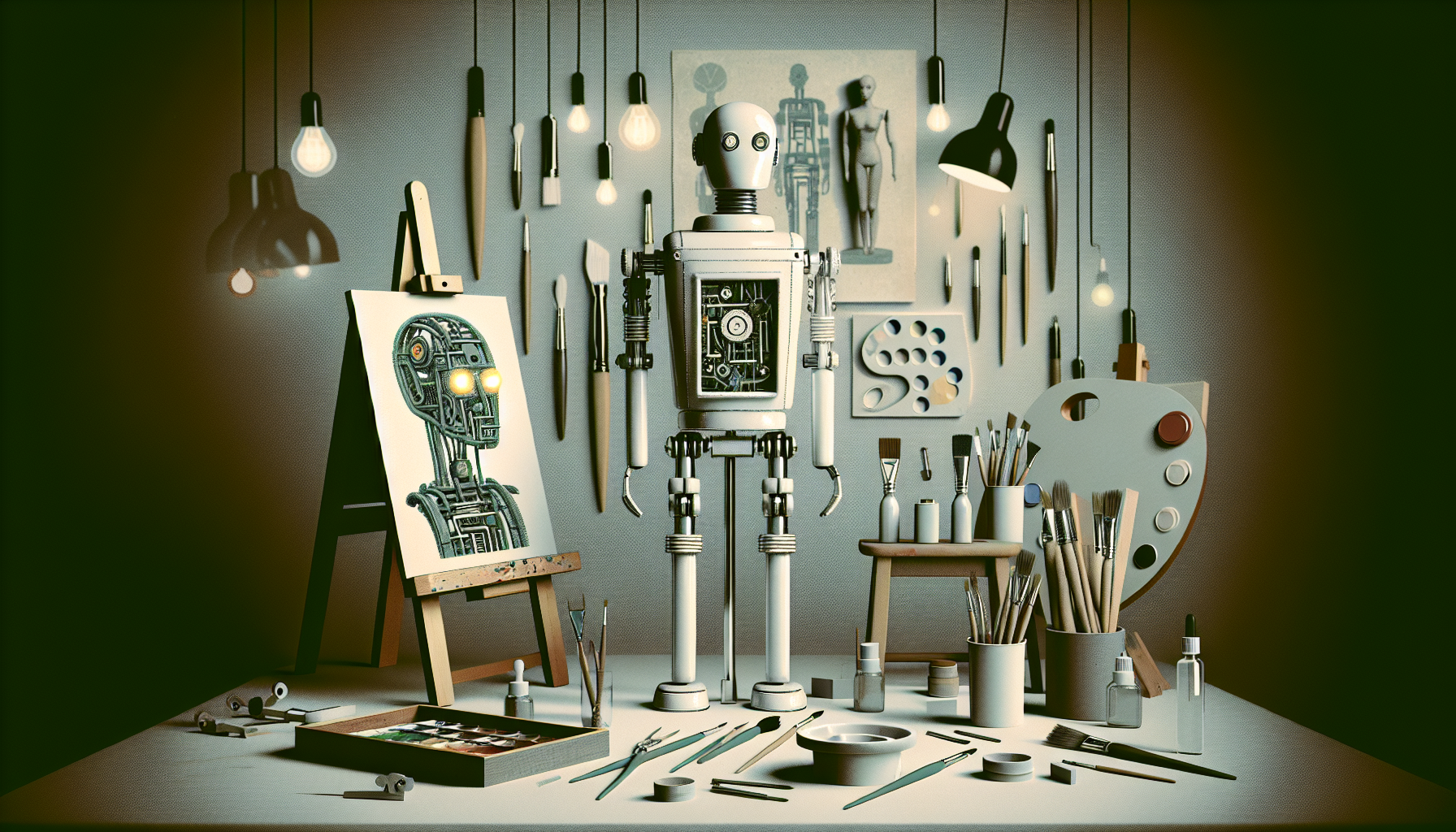To observe the feverish headlines, you would think artificial intelligence is the artist at every opening and the scientist at every conference. There are novels, paintings, symphonies, jokes, and code, all supposedly spun from the mysterious mind of machines. The idea goes like this: as AI systems become more powerful, aren’t they beginning to truly create—to originate? Is their “creativity” just an echo, or could it be a song in its own right?
Before you start genuflecting before your laptop hoping for a technological muse, let’s pull apart what it means to originate an idea.
What Do We Mean By “Originate”?
Humans often forget how un-glamorous idea generation is. Most ideas are just remnants and recombination—a taste for classical forms plus a fascination with punk, and voilà, a new musical style. Very little drops from nowhere. Even the venerable Einstein—perhaps the poster child for inventive genius—freely admitted he stood on the shoulders of giants. If we define “originate” as “producing something that has never before existed, in a way that is not simply remixing the past,” then even humans might have some explaining to do.
But there is another aspect: consciousness and intent. When we say someone is creative, we usually imagine a mind reaching out, feeling gaps, sensing the unknown, and then assembling something partly for its own enjoyment. This is the realm where surprise lives, and perhaps embarrassment, too. Someone once received a Nobel Prize for discovering something nobody understood; the creative person is conscious not only of the process but also the risk.
How AI “Creates”
Most of today’s artificial intelligence systems—including the ones that generate fun images or poems—learn from a gigantic pile of data. A machine assimilates, say, every painting it can find, then tries to reproduce what looks like a painting, given your prompt (“show me a green dog in a flying taxi, in the style of Van Gogh, holding a cell phone”). The result can be delightful, uncanny, or awkward, but it is always a recombination of past works.
Generative AI doesn’t guess what it’s like to dream. Instead, it sorts mathematical relationships between words, images, or sounds, based on patterns in its data. When prompted, it statistically predicts what comes next—or what “would” come next, if it were an artist, trained on all of history and none of its own childhood.
No inner turmoil. No anxiety about what the critics will say. No late-night “a-ha” moments with coffee stains on its code. AI systems don’t possess intent or self-reflection. They don’t care whether their creations are profound or pedestrian. This is not to say the outputs aren’t sometimes remarkable—they are—but the inner theater that philosophy ascribes to true creativity is missing.
But What About Surprises?
It is fair to say that AI occasionally produces results that surprise even its designers. A novel sentence, a witty joke, a beautiful musical phrase—sometimes, the output hasn’t ever been written or played before. Doesn’t this qualify as origination?
Let’s imagine a mechanical arm, sweeping randomly over tubes of paint, accidentally daubs a combination never seen. Is the arm creative? Or is creativity something we attribute only when there’s intention? AI’s surprises are, in a sense, byproducts of vast combination—the system is so complex and the data so rich that unexpected results are inevitable. It plays at the boundaries of probability. But is this enough to declare AI a true originator? Or is it more like an incredibly talented mimic, tossing paint at the wall and seeing what sticks?
The “Alien” Perspective
One could argue that creativity, at its core, simply means producing something new and useful (or interesting) to an audience. Anyone who has read a six-year-old’s story knows that “new” and “useful” are in the eye of the beholder. By this token, if AI regularly composes ideas that surprise, delight, or even provoke us, isn’t it creative, regardless of what’s happening inside the machine?
Philosophers love a paradox, and here’s a good one: what if the very absence of human bias, human needs, or human consciousness in machines allows them to invent things we never would? Could AI’s “alien” logic—free from the normal grooves of human thought—lead to creative breakthroughs simply inaccessible to us?
Well, perhaps. But as of now, AIs are trained on us (and our data), so their sense of “newness” is as much a reflection of our own boundaries as their own invention. Until an artificial intelligence generates ideas that genuinely outpace our imagination, without having us supply the substrate for their dreams, we’re left with something that is, at best, next-level collage.
Creativity, Consciousness, and the Human Condition
The heart of the issue is consciousness. If creativity involves intention, self-reflection, and an awareness of risk, no AI today can claim those hallmarks. The creative act may be less about producing the unexpected and more about experiencing curiosity, doubt, and daring in the face of uncertainty. When we ooh and aah at AI’s outputs, we’re perhaps projecting our own gifts onto a highly sophisticated mirror.
Should AI suddenly develop this kind of inner life—the capacity to daydream, to fear rejection, to relish discovery—then the question of genuine origination becomes philosophical rocket fuel. But for now, our machines are marvelously powerful pattern detectors, remixers, and amplifiers. They may be muse-like, but they are not muses.
That said, isn’t there a kind of poetry in that? Here we have built mindless tools that reflect our deepest questions about what it means to think, to create, to originate. Maybe AIs force us to understand our own urges more clearly. We are—if you’ll pardon the phrase—the originators of our own anxieties.
So, when your spreadsheet finally writes a poem that brings you to tears, ask yourself: is it the AI, or is it you, responding to a novel echo of your own creative ancestors? The answer might make for a good story. Perhaps even a creative one.

Leave a Reply